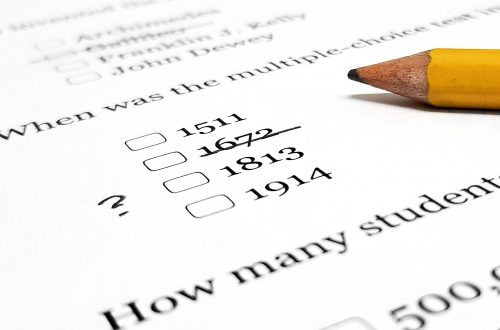by Brian Peterson
An article in The Wall Street Journal late last year explains a rising trend regarding homework in schools. School districts in Connecticut, Louisiana, New Jersey, and Texas have done away with homework to various levels. Some have banned it altogether and added extra time to the school day in order to compensate. Others have decided not to assign any homework over weekends or short breaks. Still others have seen fit to assign homework but not to grade it. All of this is being done largely in the name of ‘wellness.’ “The goal of the changes is to give students more time to read, sleep and spend time with family,” according to the article.
Those concerned about the phenomenon, however, fear that something might easily be lost. Some parents want to retain homework in order to see if their child is keeping up. Some teachers are worried that a key “tool to reinforce the day’s lesson” is now absent. Some students are simply skipping the now-ungraded homework, because, well, it’s not graded. A result is that some test scores have lowered in math. One reply to these concerns has been that individualized homework can easily be assigned to struggling students.
Clearly, the recent focus of educators has been on the question: whither homework? And the answer is: seemingly to the wayside. But no one appears to be asking the deeper question: “Wherefore homework? Why would we assign it?”
Those cited in the article all land on some version of acquired skills as the answer. Accordingly, homework is meant to reinforce a day’s lesson, to see if the students understand the topic, and to give students practice in cementing an idea.
Certainly, these are laudable goals, and important. However, this thing we call ‘education’ is not an endeavor we undertake as isolated beings. It is primarily a joint effort among us humans. Simply put: we learn together. The ‘together’ here does not mean only the teacher and the student. Indeed, the ‘together’ is comprised of everyone – not only everyone in the classroom but everyone across the globe and even throughout history.
Thus the question “Wherefore homework?” ought not to be answered only with respect to the individual and the skills he or she could acquire. Rather, the answer to why we assign homework ought to be to prepare students to enter into the joint endeavor of learning.
Imagine an ensemble of string instruments. When the ensemble assembles, if Sven has not practiced his violin or Annika her cello, how is the ensemble to play well, if play at all? Obviously, both musicians ought to practice in order to gain the skills necessary to play, but that playing is not meant for isolation. The ensemble plays together in order to be in the joint endeavor of exploring and producing music. The musicians have a responsibility to the ensemble, they have specific roles within the ensemble, and they have a measurable effect on the ensemble.
Likewise, the student has a responsibility to the class, a specific role within the class, and a measurable effect upon the class. As such, the student’s homework ought to be as much preparation for entrance to the ensemble of the class as it is for the acquisition of specific skills.
Such a view on homework opens new possibilities for the student’s comportment in class the next day. The student prepares herself for entrance into class, not just to show off what she knows, but to engage with others in order to explore the topic and, more importantly, the truth of and within the topic. Picture Annika at home on a given evening, completing her algebra homework. She is not simply working to acquire skills to manipulate functions, but to enter into the community of the class. The next day, Annika can surely demonstrate her facility, but she can also go beyond that to inquire about the reality of functions – their usefulness (yes), but also their shape, their purpose, even their beauty. All of this gets Annika and the rest of the class closer to the truth of algebra. All of this enables the educational ensemble that is the class to perform.
Picture Sven at home on a given evening, reading Beowulf for his humanities class, not simply to acquire the skills of reading for comprehension or reading with the expectation that he may have to produce a piece of writing on the story. Instead, he is reading to enter into the community of the class. The next day, Sven can surely demonstrate his knowledge of the characters, plot, and overarching ideas within the story. But he can also go beyond this to engage his own and the class’s imagination by crossing into the world of the men, women, and monsters in Beowulf – their fortunes and failures, their motivations and deepest desires, their sense of glory along with their acknowledgment of death’s finality. All of this gets Sven and the class closer to the truths embedded in and explored through really good literature. All of this enables the educational ensemble to perform.
And so, “Wherefore homework?” To be sure, it is the exploration of the truth of a topic that drives learning; which is what the student does during homework time at the end of any given day so as to be prepared for participation in the educational ensemble at the beginning of the next.

Dr. Brian Peterson is an ordained Lutheran pastor from South Bend, IN who also teaches and coaches soccer. When he’s not preparing lessons on the ancient world of the Hebrews, Greeks, Romans, and Christians he is most likely on a bike ride or on a camping trip. Good coffee and good sleep are both very important to him.





